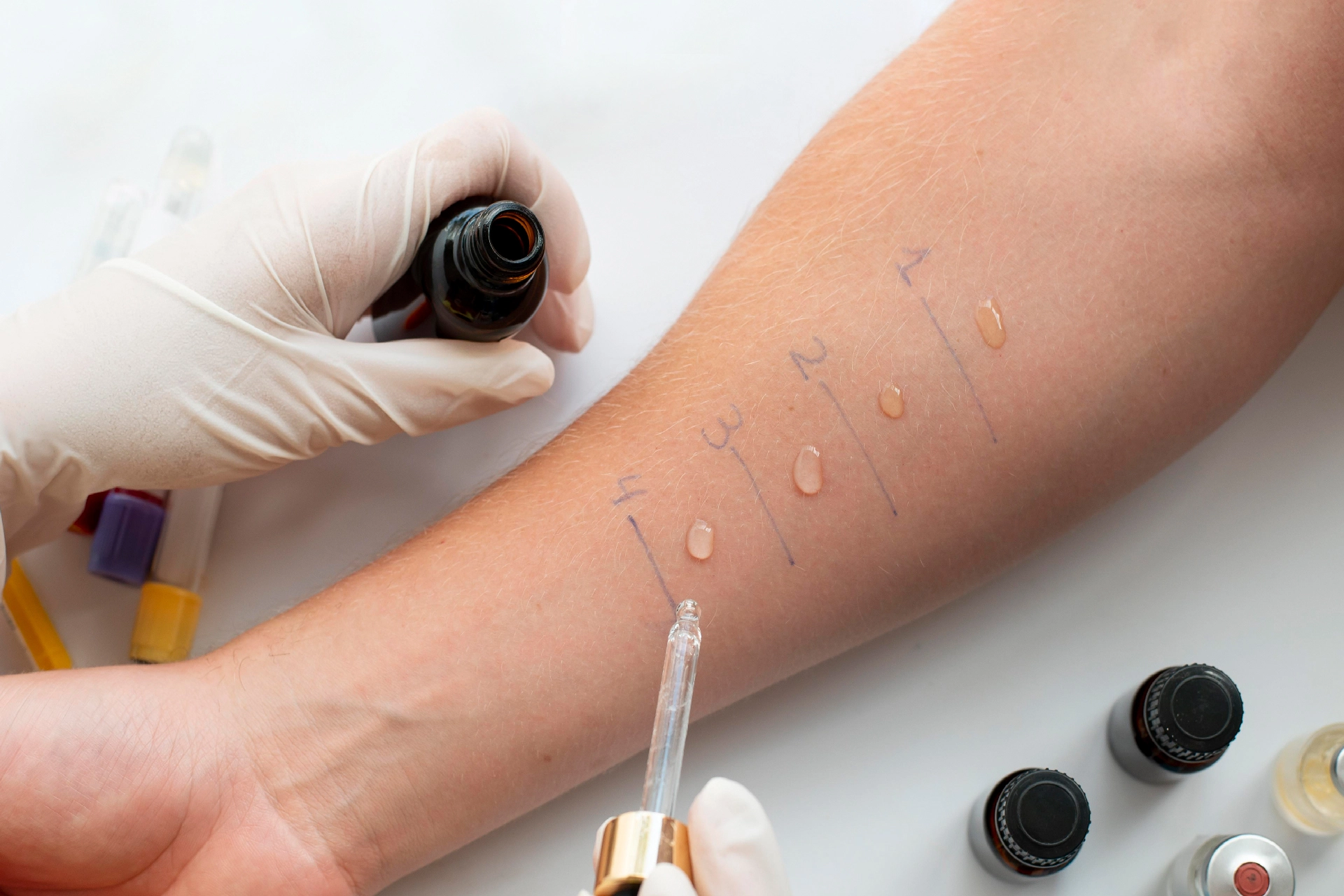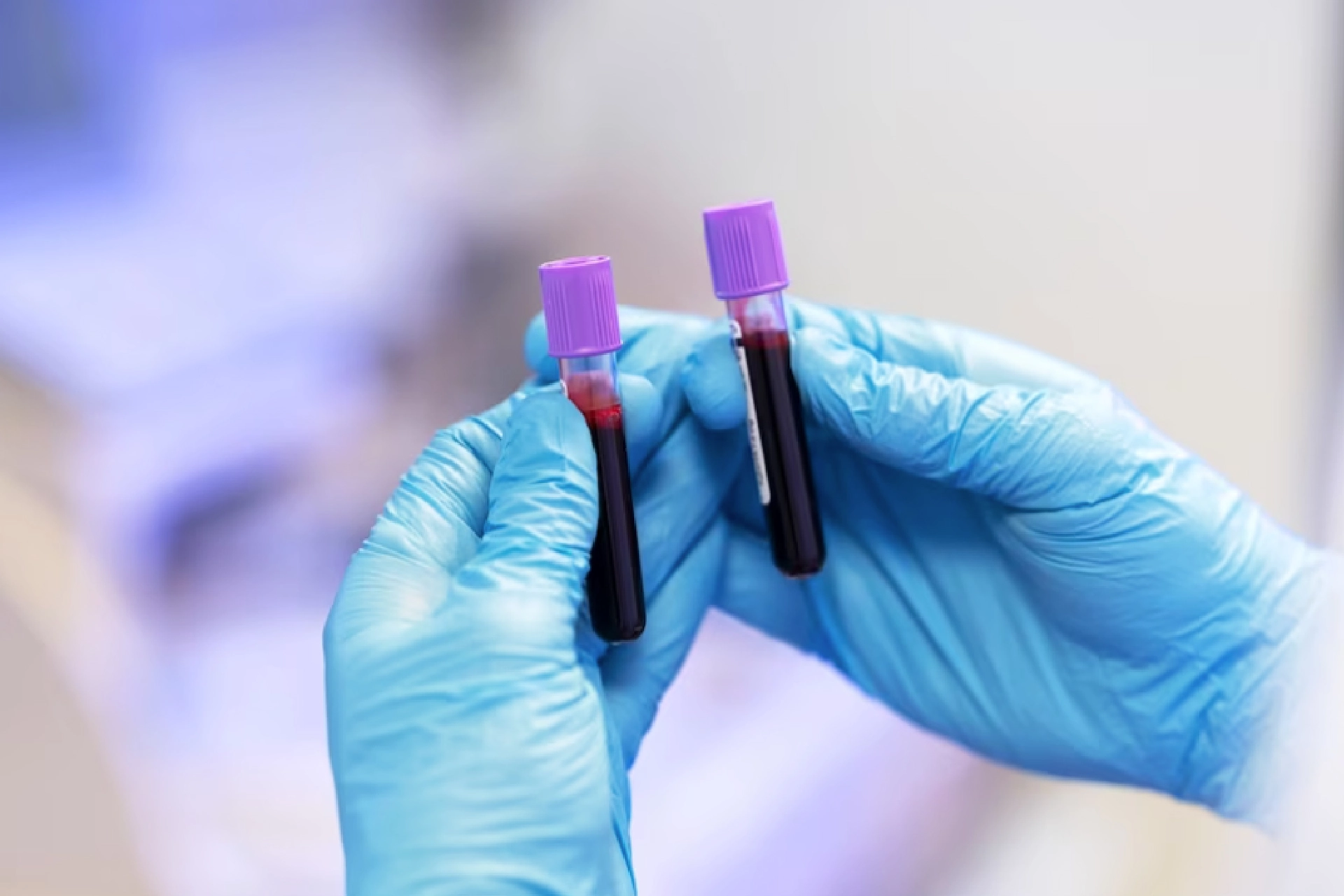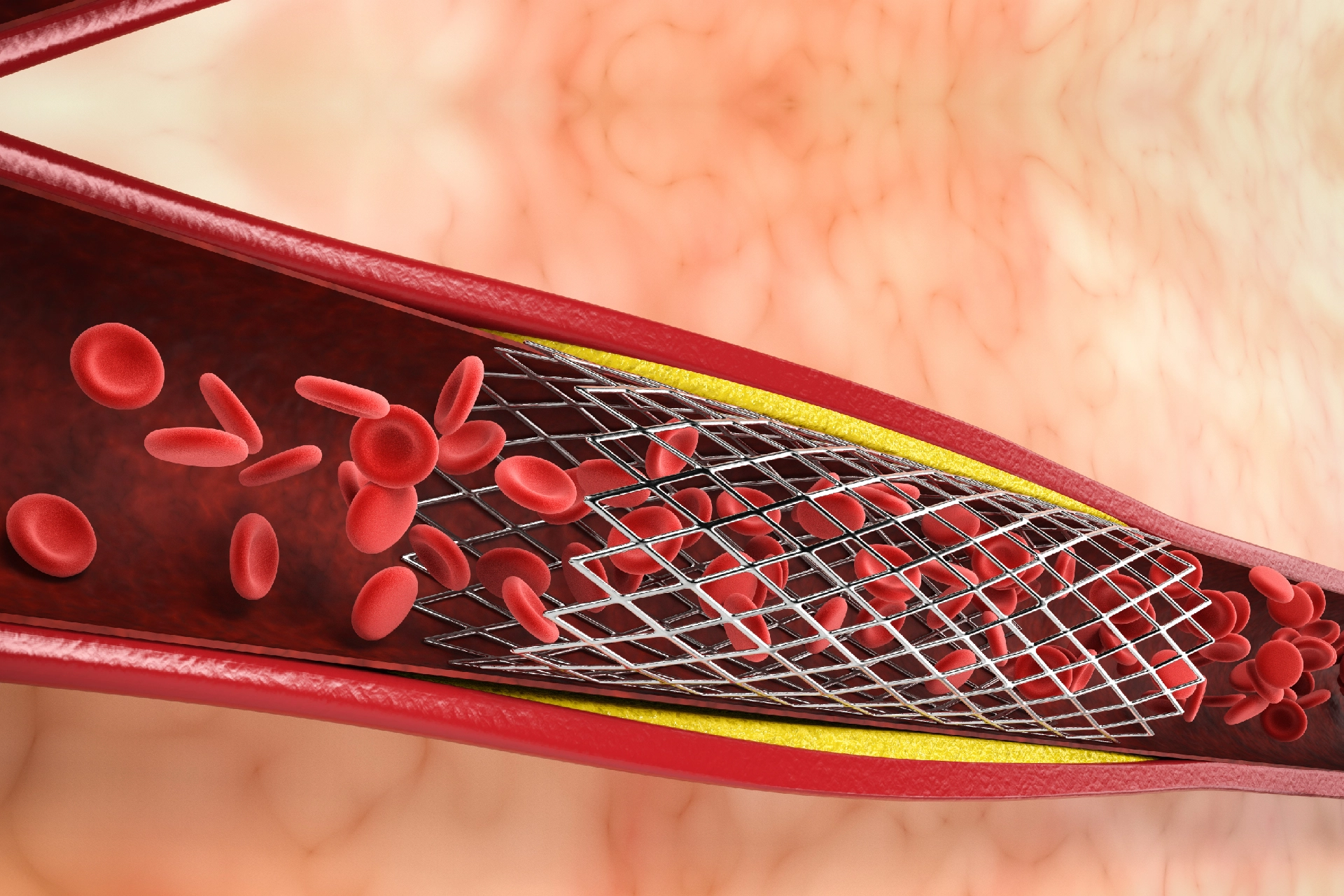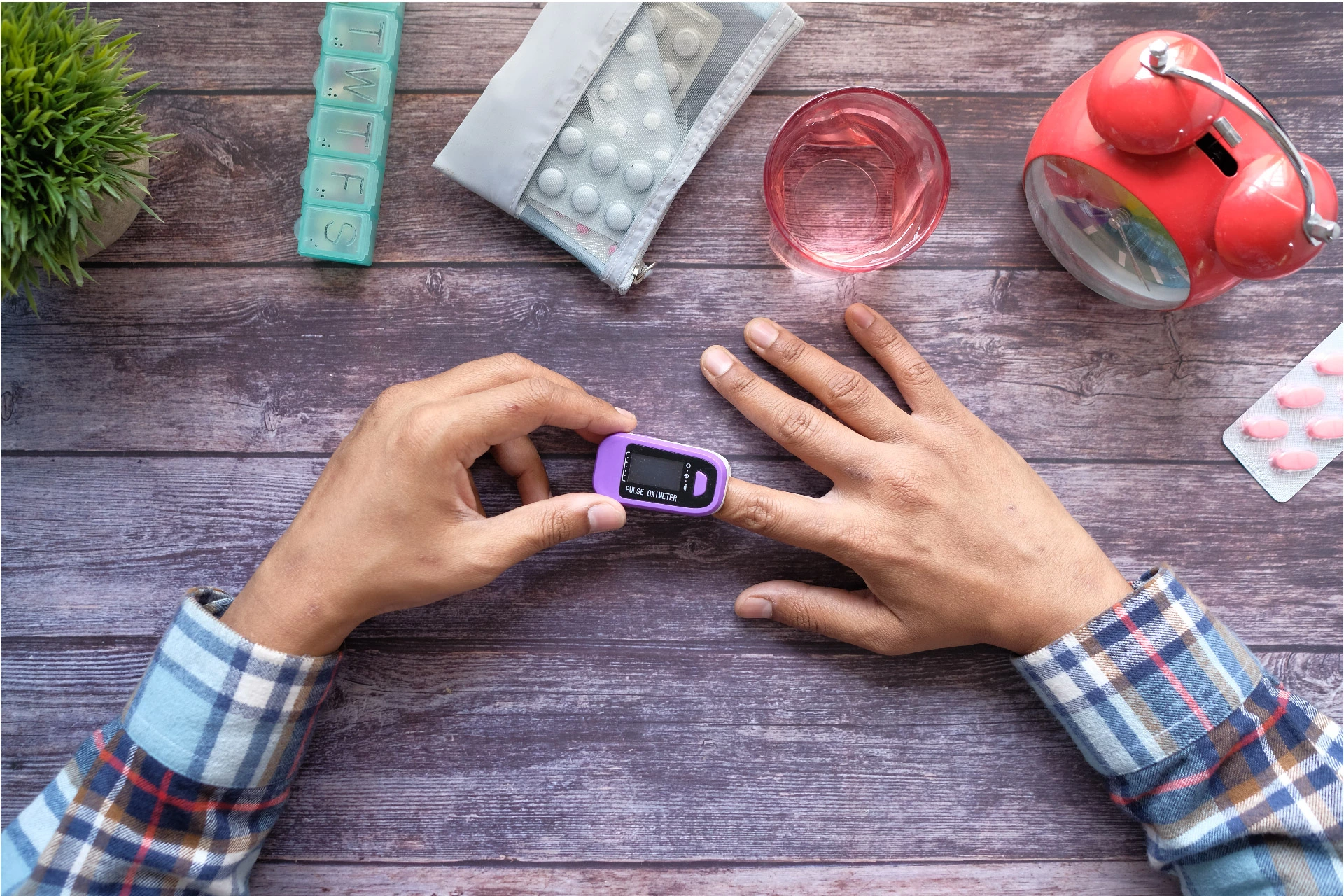Health Tests | 8 min read
Allergy Testing: Types, Procedure and Common Allergens
Medically reviewed by
Table of Content
Synopsis
Certain food, inhalants, medicines, and more may cause an allergic reaction like rash, hives, blocked sinuses, etc. You need to go for allergy testing to determine the cause of your allergy and seek appropriate treatment. This blog provides you with important details about allergy tests.
Key Takeaways
- Common allergens include specific food, inhalants, medicines, latex, and stinging insects
- Allergy testing is broadly categorized under two types, skin tests, and blood tests
- Doctors may ask you to stop taking certain medications before going for allergy testing
Timely allergy testing and medical assistance would help you to manage allergies, a medical condition. It occurs when the immune system of your body reacts abnormally to a certain substance. The substance causing the allergic reaction is called an allergen.
Allergies can be of many types; a few of them are seasonal, and others are year-round. Many allergies can be life-long. Steering clear of your allergens is the simplest and easiest way to avoid an allergic reaction. Treatments for allergies include immunotherapy, asthma medicines, antihistamines, nasal steroids, and decongestants.
Types of Allergens
Certain foods
When your body releases a specific antibody to a specific food, food allergies tend to develop. An allergic reaction may occur within just a few moments of eating the food, and its symptoms might be severe. If you have symptoms like swelling around your mouth, including the throat, tongue, or face, after having food, or itching in your body, then it would be prudent to go for an allergy blood test at once. The symptoms can also include anaphylaxis in case you have an IgE-mediated food allergy. A few of the common food allergens are peanuts, wheat, eggs, milk, and soy.
Inhalants
These are among the most common types of allergens. Inhalant allergies are basically airborne substances that you breathe in or inhale. They include seasonal and perennial allergens. The latter can affect you throughout the year. Common perennial allergens are pet dander, dust mite, and mold. Seasonal allergies, on the other hand, include pollen. Inhalant allergy symptoms include watery eyes, itchy eyes, itchy nose, runny nose, and stuffy nose. In case you have asthma, it might worsen or trigger your symptoms.
Medications
There are particular medications that might cause an allergic reaction, like swelling, shortness of breath, itching, and/or rash. These medicines can be prescription, over-the-counter (OTC), or herbal.
Latex
Latex allergies may develop subsequent to repeated contact with natural rubber latex. Rubber gloves, bandages, and balloons are a few common natural rubber latex products. Skin irritation is the most common reaction to latex. It manifests as rashes on the area of the skin that was in contact with latex.
Venom/stinging insects
Stinging insects may inject venom, which essentially is a toxic substance. The venom in insects may cause symptoms like hives, difficulty in breathing, rapid pulse, and wheezing, as well as swelling in the face, throat, or mouth.
Additional Read: Types of Skin Rashes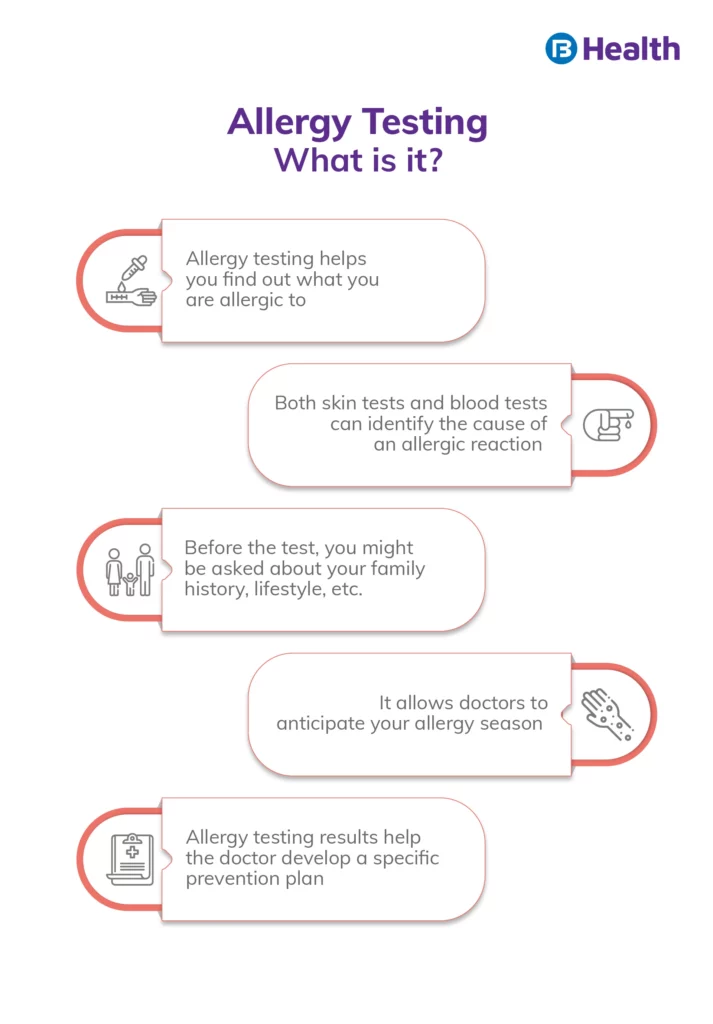
Allergy Testing Purpose
Allergy tests are done in order to identify the substances causing allergy symptoms. The allergy test procedure is carried out by professionals and can be in the form of a blood or skin test (prick/patch). Your doctor might recommend you to go for allergy testing in case you have asthma symptoms and hay fever that are not managed with medicine, or if you get skin rashes that become swollen, sore, or red after contact with the substance, and so on.
Allergy testing can help identify allergy triggers that can cause an asthma attack or worsen asthma symptoms. You may also require allergy testing if you have anaphylaxis, a severe allergic reaction. This potentially life-threatening issue can cause swelling or hives, breathing difficulties, and a sharp drop in blood pressure that results in anaphylactic shock. [1] Doctors are likely to use your allergy testing results and your overall health history to identify the root cause of the severe reaction.
An allergy test procedure would help determine the specific food, molds, pollen, or other substances you are allergic you. You must try to avoid your allergy triggers and may even need medication to treat your allergies.
How to Prepare For Allergy Testing
Prior to the allergy testing, your doctor might ask you about your family health history, your lifestyle, and so on. They may ask you to stop taking the following medications before the test as they can impact the results of the allergy testing:- Systemic corticosteroids (if you are going for patch testing)
- Tricyclic antidepressants
- Benzodiazepines
- Particular heartburn treatment medications
- Over-the-counter and prescription antihistamines
How is Allergy Testing Done?
Allergy testing basically measures the response of your body to certain allergens or allergy triggers. Your immune system shall overreact if you have an allergy. The body produces antibodies known as immunoglobulin E (I g E) that triggers the release of chemicals, causing an allergic reaction.
Allergy testing can be performed in a number of ways. Your doctor shall select the ideal method on the basis of your symptoms and suspected allergens. Those methods will be discussed later in this blog.
What to Do if I Have an Allergy?
There shall be many ways to proceed if you discover that you have an allergy. For instance, if you are allergic to a certain food, then you just have to remove it from your diet. However, many allergies need treatment. Your doctor can prescribe medications like corticosteroids or antihistamines in a few cases. Immunotherapy or allergy shots is another treatment. You will be given shots that contain the allergen during immunotherapy so that your body is able to gradually build up immunity. Doctors may additionally prescribe emergency epinephrine to people with life-threatening allergies.
Additional Read: Winter Allergies
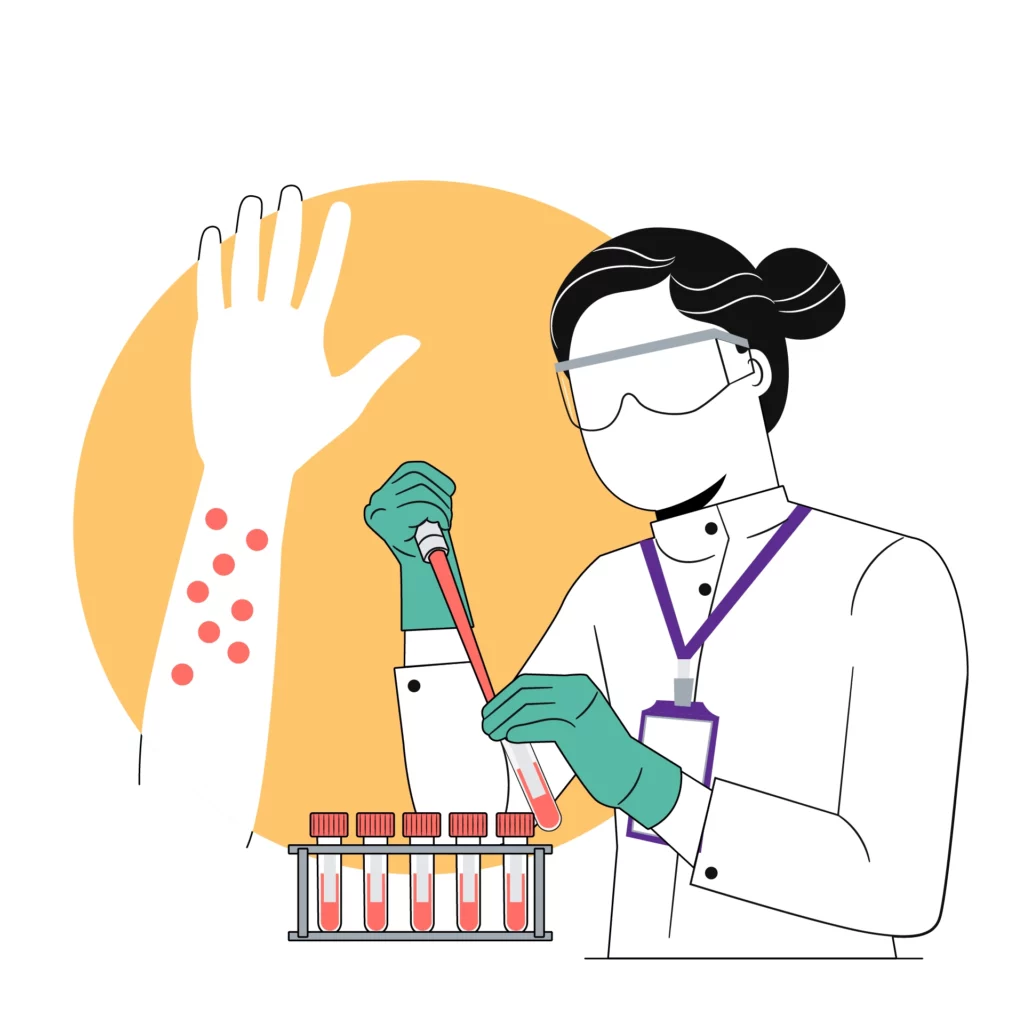
Is Allergy Testing Reliable?
Allergy testing can result in mild redness, itching, and swelling of the skin. These symptoms usually clear up within a few hours, but at times they can last for days. A mild topical steroid cream would be useful in alleviating such symptoms. On very rare occasions, allergy tests might produce an immediate, severe allergic reaction that requires urgent medical attention. Healthcare providers are ideally always prepared with epinephrine in order to deliver the required emergency care to help you if you have a severe reaction during an allergy test.
Types of Allergy Tests
Skin prick (Scratch) Test
The healthcare provider takes a thin needle to prick the skin area on your forearm or back with ten to fifty distinctive potential allergens. Or, they might place small drops of allergens onto your skin and then scratch your skin using a device and puncture the area so that the liquid enters your skin. Reactions like redness generally take place within fifteen minutes of exposure. Your reaction might be rashes or certain round raised spots known as wheals. This allergy profile test is used to check for food allergies, penicillin allergies, and airborne allergies.
Intradermal Skin Test
If your skin prick test results are inconclusive or negative, your doctor may tell you to go for an intra-dermal skin test. Under this allergy testing, the healthcare provider injects tiny amounts of allergen into the outer layer of the skin. This test checks for allergies to insect stings, medications, and airborne irritants.
Patch Test
This allergy testing is done to determine the cause of contact dermatitis. The healthcare professional shall place drops of an allergen onto the skin and then cover the area with a bandage. They may even apply a patch or bandage that has the allergen on it. You would have to keep the bandage on and return to the office/clinic of the healthcare professional within 48 to 96 hours. They would then remove the bandage and check your skin for a rash or some other reaction.
Blood Test
If there is a chance that you are unable to perform a skin test or may have a severe allergic reaction to it, your doctor might ask you to go for an allergy blood test. A blood sample gets tested in a lab for the presence of antibodies that fight particular allergens. This test is quite effective in detecting IgE proteins to major allergens. Before leaving your doctor's office, you'll get to know the results of an intradermal test or a skin prick test. A patch test may take several days to produce results.
Additional Read: ESR TestAllergy Test Meaning
A positive skin test implies that you might be allergic to a certain substance. Larger weal's typically indicate a higher degree of sensitivity. [2] A negative skin test, on the other hand, means that you probably are not allergic to a particular allergen. You must know that skin tests are not always accurate. At times they indicate an allergy when there isn't one (false-positive). Or, skin testing might not trigger a reaction even after you are exposed to something you are allergic to (false-negative). You might react differently to the very same test performed on separate occasions. Or, you can react positively to a substance during an allergy test procedure but not react to it in daily life.
You are likely to get the results of most allergy tests just after testing at the office of your healthcare provider. A patch test might take multiple days. Results from an allergy blood test sent to a lab may take a week or longer.
Timely allergy tests would help your doctor to create an allergy treatment plan that may include medications, allergen avoidance, or allergy shots. Contact Bajaj Finserv Health to connect to an online doctor consultation and book an online lab test for allergy testing. You can find the allergy test cost and other details on the Bajaj Finserv Health website.
References
- https://www.britannica.com/science/cardiovascular-disease/Anaphylactic-shock
- https://www.worldallergy.org/education-and-programs/education/allergic-disease-resource-center/professionals/allergy-diagnostic-testing
Disclaimer
Please note that this article is solely meant for informational purposes and Bajaj Finserv Health Limited (“BFHL”) does not shoulder any responsibility of the views/advice/information expressed/given by the writer/reviewer/originator. This article should not be considered as a substitute for any medical advice, diagnosis or treatment. Always consult with your trusted physician/qualified healthcare professional to evaluate your medical condition. The above article has been reviewed by a qualified doctor and BFHL is not responsible for any damages for any information or services provided by any third party.
